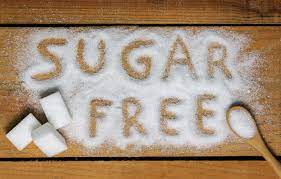
Breaking News
 Silver's $3 Trillion Stress Test
Silver's $3 Trillion Stress Test
 BlackRock Just Confirmed the Worst-Case Scenario
BlackRock Just Confirmed the Worst-Case Scenario
 A COMEX report says JPMorgan closed its silver short around ~$78.
A COMEX report says JPMorgan closed its silver short around ~$78.
Top Tech News
 How underwater 3D printing could soon transform maritime construction
How underwater 3D printing could soon transform maritime construction
 Smart soldering iron packs a camera to show you what you're doing
Smart soldering iron packs a camera to show you what you're doing
 Look, no hands: Flying umbrella follows user through the rain
Look, no hands: Flying umbrella follows user through the rain
 Critical Linux Warning: 800,000 Devices Are EXPOSED
Critical Linux Warning: 800,000 Devices Are EXPOSED
 'Brave New World': IVF Company's Eugenics Tool Lets Couples Pick 'Best' Baby, Di
'Brave New World': IVF Company's Eugenics Tool Lets Couples Pick 'Best' Baby, Di
 The smartphone just fired a warning shot at the camera industry.
The smartphone just fired a warning shot at the camera industry.
 A revolutionary breakthrough in dental science is changing how we fight tooth decay
A revolutionary breakthrough in dental science is changing how we fight tooth decay
 Docan Energy "Panda": 32kWh for $2,530!
Docan Energy "Panda": 32kWh for $2,530!
 Rugged phone with multi-day battery life doubles as a 1080p projector
Rugged phone with multi-day battery life doubles as a 1080p projector
 4 Sisters Invent Electric Tractor with Mom and Dad and it's Selling in 5 Countries
4 Sisters Invent Electric Tractor with Mom and Dad and it's Selling in 5 Countries
Not so sweet: Chemical in common artificial sweetener found to damage DNA

The artificial sweetener in question is sucralose, sold under the brand name Splenda. Sucralose is 600 times sweeter than sugar and can be found in many baked goods, soda, chewing gum, gelatins, and frozen dairy desserts. A 2020 study showed that Splenda was easily Americans' most preferred sugar substitute, with 51.4% of the population using it. The next popular was Sweet'N Low, which contains saccharin, at 25%.
North Carolina State University researchers looked particularly at sucralose-6-acetate, one of the fat-soluble compounds produced when sucralose is broken down (metabolized) in the body, to determine how it affects the body, particularly DNA. They'd already studied sucralose metabolism back in 2018, which is how they knew about the existence of sucralose-6-acetate.

 The Trump Show
The Trump Show 

